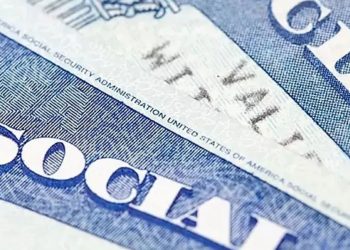A federal judge has ruled that disputed ballots in North Carolina’s unresolved 2024 Supreme Court race must be counted, clearing the way for Democratic incumbent Allison Riggs to retain her seat.
In a decision issued late Monday, U.S. District Judge Richard Myers sided with Riggs and others who argued that removing thousands of ballots—deemed ineligible by state appellate courts—would violate the U.S. Constitution. Myers stated that tossing out votes six months after Election Day would infringe on voters’ due process and equal protection rights.
Myers ordered the State Board of Elections to certify the election results, which after two recounts show Riggs leading Republican challenger Jefferson Griffin by 734 votes. However, the ruling includes a seven-day delay to give Griffin time to appeal to the 4th U.S. Circuit Court of Appeals.
The judge stated the board “must not proceed with implementation” of the state courts’ orders and instead certify the results based on the final post-canvassing tally. Myers, a Trump appointee, emphasized that the rules of the election can’t be changed after it concludes.
More than 5.5 million ballots were cast in the race—making it the last unresolved contest from the November 2024 general election. Griffin had filed multiple protests, aiming to disqualify ballots he claimed were unlawfully submitted, hoping that doing so would change the outcome in his favor.
Griffin’s campaign is currently reviewing the judge’s decision and considering next steps, according to spokesperson Paul Shumaker.
Riggs expressed confidence in the decision:
“Today, we won. I’m proud to continue upholding the Constitution and the rule of law as North Carolina’s Supreme Court Justice.”
Griffin had argued the state court rulings should be upheld, noting that most voters with questionable ballots had been given 30 days to verify their identities.
Riggs, along with the state Democratic Party and several voters, argued that Griffin was attempting to alter the outcome after the fact by targeting ballots from voters who followed the rules in place last fall. His challenges—mainly concerning photo ID—focused on no more than six Democratic-leaning counties.
In his 68-page order, Myers rejected Griffin’s protests, calling them an effort to retroactively change the rules in a way that unfairly excluded certain voters.
“You establish the rules before the game. You don’t change them after the game is done,” Myers wrote.
He warned that allowing such tactics would create “confusion and turmoil” and erode trust in elections and institutions.
Democrats and voting rights advocates have condemned Griffin’s efforts, calling them a threat to democracy and a dangerous precedent for future elections. Meanwhile, the state GOP defended Griffin’s actions as a push to ensure only valid votes are counted.










Congratulations, it’s about time
The lady had the most votes